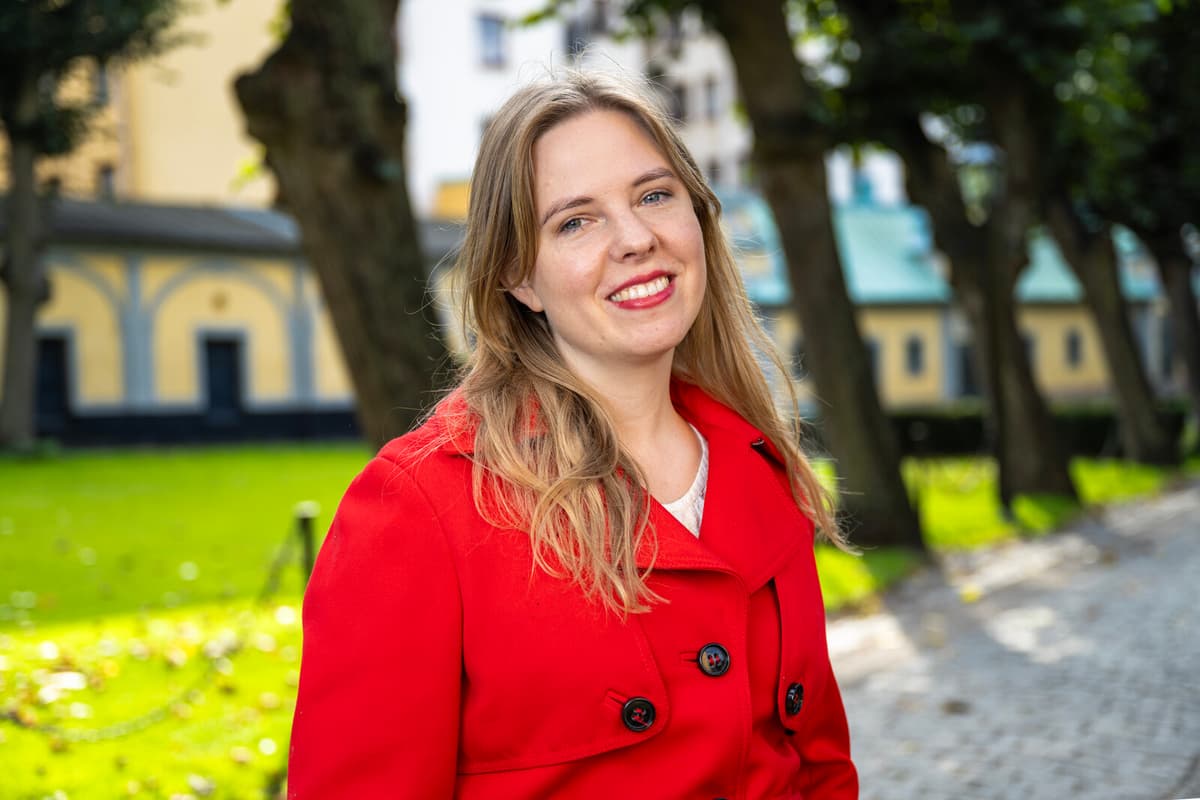"Where they burn books" is the title of Ida Ölmedal's debut book, a phrase that is primarily associated with the Holocaust.
But Ölmedal, new cultural editor at Svenska Dagbladet and frequent speaker at the Book Fair, writes about today's Swedish book burnings – Koran burnings – and other reasons why freedom of speech is currently being renegotiated, as she puts it.
Freedom of speech is under strong pressure, and the debate can be a bit superficial among those who defend it. You need to sharpen your arguments. I want to highlight that this trend exists and increase understanding of why it looks like this. But I don't want to tell people what to think.
When the Book Fair in Gothenburg in the 1980s invited the queen of trashy novels, Jackie Collins, a boycott was in the air. The Library Service had, like the then-city librarian in Stockholm, dismissed her books as pornographic and flat – they didn't belong in public libraries.
Objectivity
According to today's library law, however, libraries' purchases must be characterized by objectivity, which includes "Hollywood wives".
Libraries are a pillar of democracy. One thing I want to show in the book is that freedom of speech is something protected by professionals like teachers and librarians, by lawyers and police officers – it's something that's practiced, it's not just a slogan, says Ida Ölmedal.
Even if Swedish municipalities, unlike American states, haven't handed over book purchases to political school boards that weed out LGBTQ+ or racist content, it doesn't necessarily mean that Swedish public libraries are vaccinated against political meddling, she emphasizes.
I think it can come to Sweden too. We don't have very good protection for arm's length distance out in the municipalities.
Advertisement
The book as a form still has a very strong symbolic value, which is why it's attacked from a populist perspective.
Security
When it comes to the ongoing match between freedom of speech and national security, the former has already lost a few rounds, she thinks.
The contemporary threats to freedom of speech see in several parallel processes, including a strong focus on counter-terrorism and the impact of social media.
In the long run, there must be an acceptance that everyone is allowed to think differently, that acceptance must exist among ordinary people, it can't be something that only lawyers decide from above.
Erika Josefsson/TT
Ida Ölmedal
TT
Born: 1989.
Background: Editor at the student newspaper Lundagård, reporter at Dagens Industri and Fokus, and editor at Expressen. After a few years as cultural editor at Sydsvenskan and Helsingborgs Dagblad, she became the new cultural editor at Svenska Dagbladet in 2024.
Current: With the book "Where they burn books. Stories about forbidden words and purged literature". Participates in many seminars at the Book Fair in Gothenburg, including "The Nazis' cultural plundering".
...to stop Koran burnings by considering them as incitement against a group:
There is a risk that one is dishonest in the debate about why one widens the crime, namely that one says one does it to protect vulnerable groups, but instead does it to get rid of Koran burnings and protect security.






